AREA OF EXPERTISE
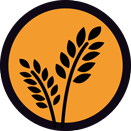
Food security and livelihood
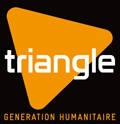
AREA OF EXPERTISE

Food security and livelihood
FUNDING




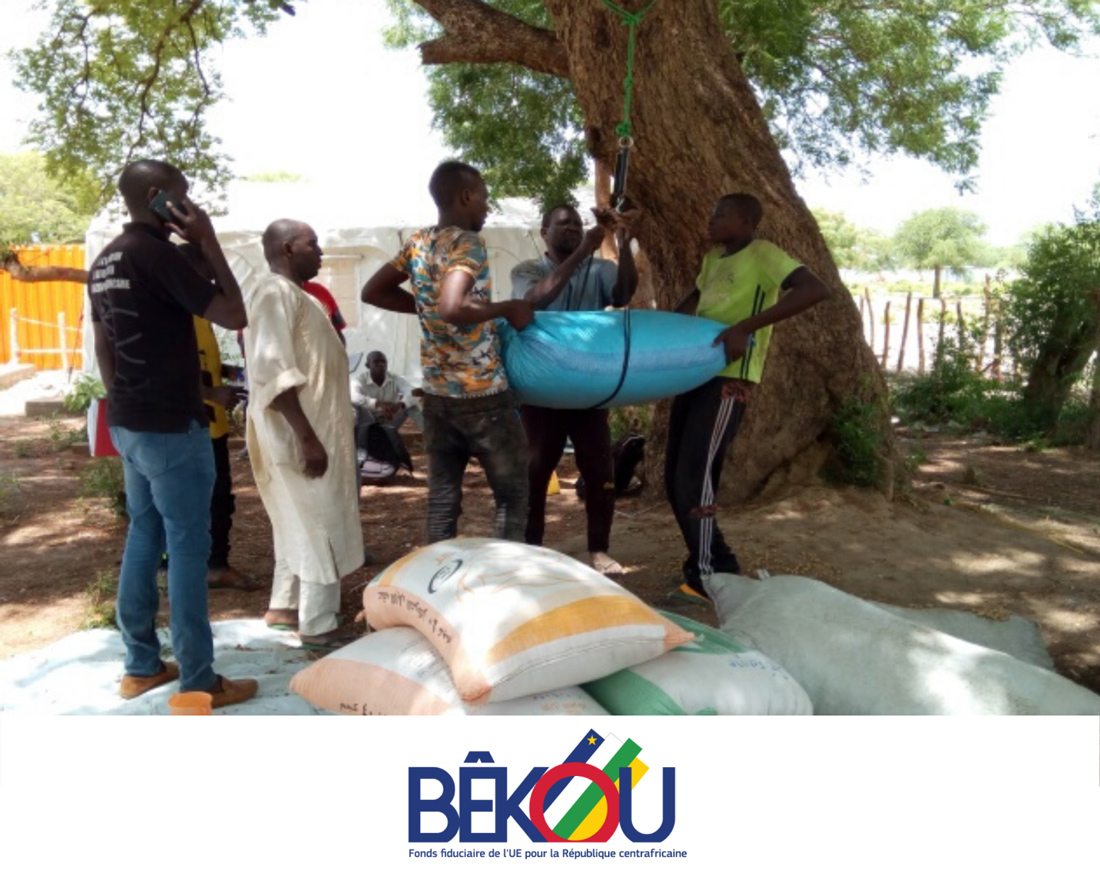
Since 2012, the Vakaga prefecture has been one of the most affected regions of the Central African Republic (CAR) by the consequences of the politico-military crisis. This region, far from Bangui (CAR's economic centre) and virtually devoid of public services and modern infrastructure, is at the same time underdeveloped, underpopulated and geographically isolated (roads impassable during the rainy season) and consequently socially, politically and economically constrained.
Chronic disorganization and historical under-investment in agricultural and pastoral markets due to the prefecture's isolation, lack of integration of agricultural sectors, low value added of raw products, and lack of technical, organizational and financial support for farmers result in low crop productivity and a high rate of malnutrition. Vakaga is an area rich in pasture, where Chadian and Sudanese herders come during the dry season to fatten their cattle. This then leads to conflicts with the population, local farmers and herders over the occupation of arable land and the management of water points.
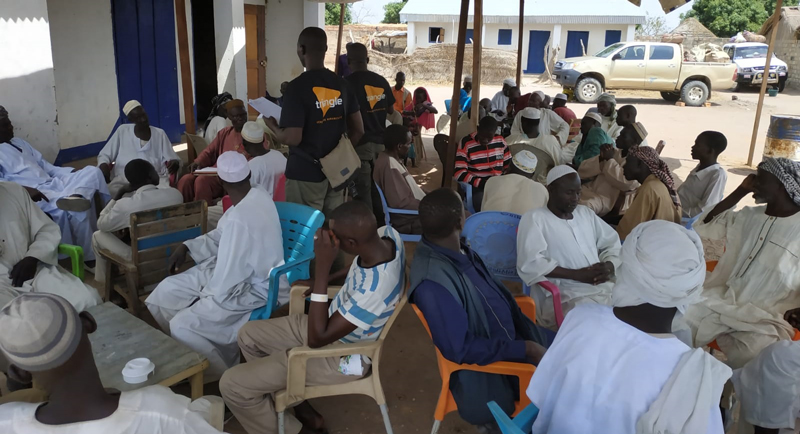
Participatory workshop in Sikikédé, Vakaga prefecture, March 2019. © Marina Lugnot, TGH.
The cropping systems implemented in the Vakaga prefecture are typical of Sudanese savannah areas and slash-and-burn agriculture. Groundnuts, millet/sorghum and cassava are grown in the main season on all these agricultural areas. There are pockets of lowland development with paddy and maize in the main season and market gardening (tomato, okra, etc.) in the off-season.
Agriculture in the area is characterised by a low level of integration between agriculture and livestock, almost no mechanisation and a reproduction of the fertility of the plots based on the extension and geographical dispersion of ager, in a context of good land availability. The low productivity of agricultural labour limits food and vegetable production and leads to difficult lean periods for households.
Farm incomes are hardly monetised, hampering household access to basic necessities. The transport of agricultural products between production basins and consumption and sale basins is made difficult and painful, especially for women, considering the poor access to mechanized means of transport. Poor and unaffordable means of transport between the main markets of Vakaga and the other provinces of CAR hamper the marketing of agricultural products.
Finally, the opportunities for the development of agricultural and non-agricultural income-generating activities are limited. For agricultural and processing production, the lack of agricultural extension services and training prevents the introduction of new techniques. For non-agricultural activities, the almost non-existent access to electricity restricts the establishment of small productive businesses.
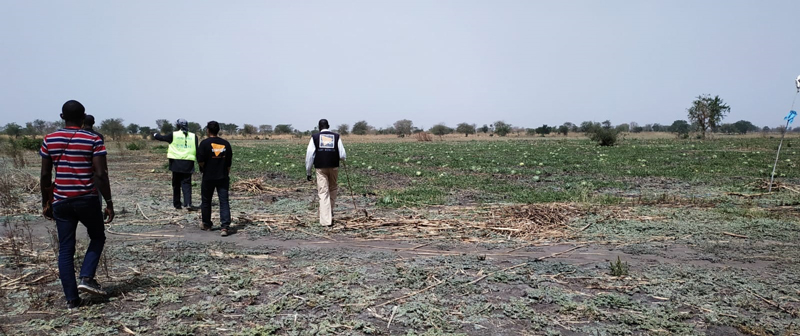
Bottom fund managed by a cooperative supported by Bêkou, in Boromata, Vakaga prefecture, March 2019. © Marina Lugnot, TGH.
TGH is today one of the two international NGOs permanently active in the region even if constraints in the region restrict humanitarian action. In consortium with NGOs present in neighboring prefectures, this program provides a response to the structural and cyclical issues affecting the food security of the population.
In synergy with four international NGOs present in northern CAR, this project aims to increase the resilience of producers and promising agro-pastoral sectors by strengthening their skills, local markets, access to adequate services and materials, and local mechanisms for peaceful conflict resolution. The action refers to the main strategic orientations of the Central African State in the fight against poverty and the revival of the agricultural and livestock sectors.
The Bêkou Fund, which means “hope” in the Sango language, was created in response to the 2013 crisis in the Central African Republic (CAR) to provide access to essential services (water and sanitation, food, healthcare, etc.) and to ensure, once security is restored, the resumption of economic activities. It thus aims to contribute to the stabilization and reconstruction of CAR by better linking reconstruction/development programmes with the humanitarian response (Linking Relief, Rehabilitation and Development, or LRRD) in order to strengthen Central African capacities.
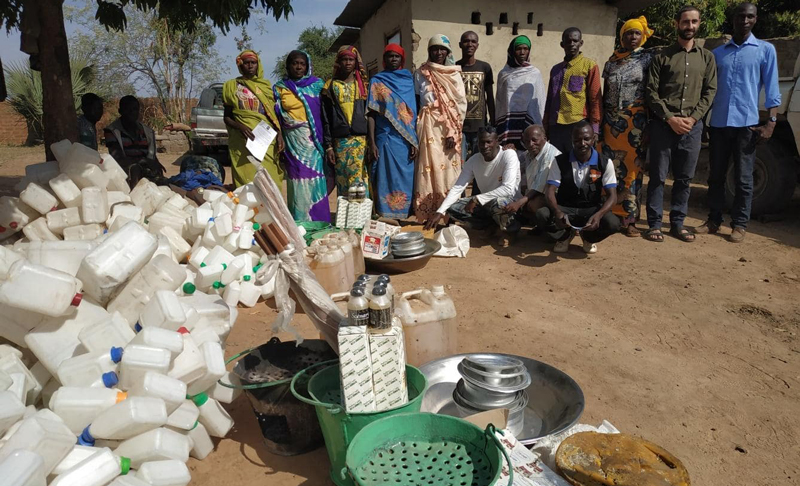
Delivery of beekeeping kits, December 2018, Birao, Vakaga Prefecture
Actors in promising and emerging agro-pastoral sectors will have access to services, inputs, equipment and infrastructure adapted to individual and collective needs. The transfer of skills and local support will enable local producers to integrate the sectors and markets.
Tensions and insecurity related to transhumance will be mitigated through awareness-raising and improved access to local mechanisms for peaceful conflict resolution.